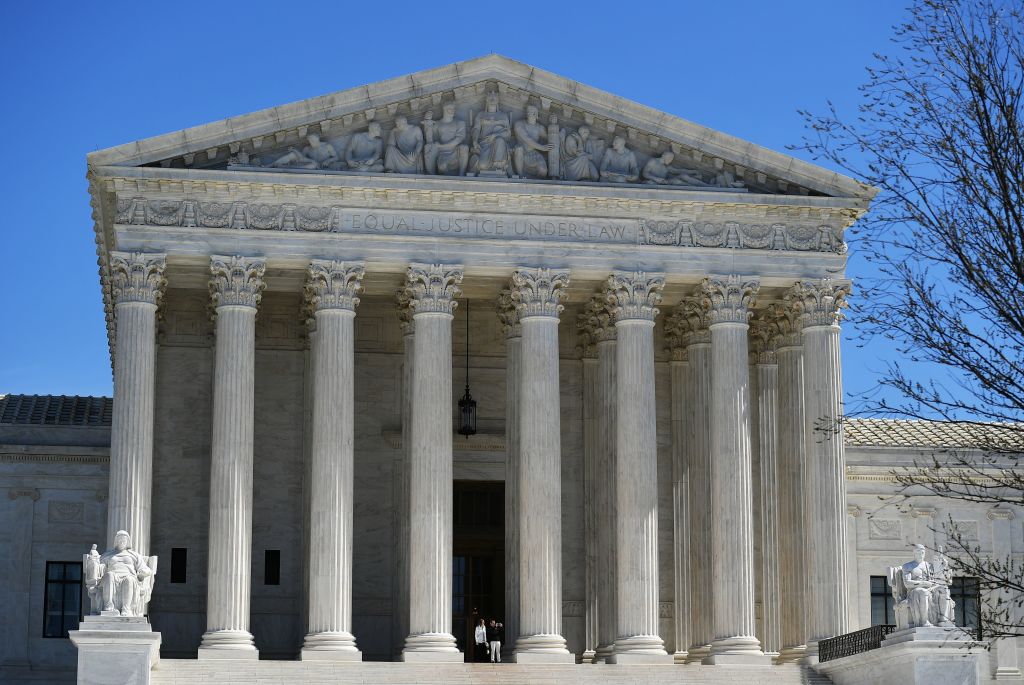The Supreme Court may have just set a troubling precedent for capital punishment


The United States Supreme Court on Monday ruled against a death row inmate who was seeking to find an alternative to lethal injection as a capital punishment method. Some believe it might set a dangerous precedent.
Slate's Mark Joseph Stern writes that the court ruled against Russell Bucklew, an inmate from Missouri who has a rare medical condition that would make death by lethal injection extremely painful for him, as confirmed by medical professionals. Bucklew requested to die by "hypoxia" — a lack of oxygen — instead, citing two Supreme Court precedents which ruled that inmates challenging their methods of execution must provide an alternative method. Bucklew fulfilled that criteria, but he lost 5-4 anyway, with the court's five conservative justices voting against him.
Justice Neil Gorsuch, who authored the majority opinion, wrote that the prisoner must not only provide a "feasible" alternative method, but that the prisoner can only do so when "the question in dispute is whether the State's chosen method of execution cruelly superadds pain to the death sentence."
The Week
Escape your echo chamber. Get the facts behind the news, plus analysis from multiple perspectives.

Sign up for The Week's Free Newsletters
From our morning news briefing to a weekly Good News Newsletter, get the best of The Week delivered directly to your inbox.
From our morning news briefing to a weekly Good News Newsletter, get the best of The Week delivered directly to your inbox.
But Gorsuch "smuggles" in that argument, writes Stern. The notion that prisoners could only request changes if the State was proven to intentionally add pain did appear in one of the precedents for this ruling written by Justice Clarence Thomas, but it was not adopted by the majority of the court. Instead, the precedents only specify that the prisoner's request can be granted if a feasible and less painful alternative is provided.
The decision could eventually warp itself into something even uglier, writes Stern, and could turn into a larger battle over the Eighth Amendment and precedents regarding capital punishment. Read more at Slate.
A free daily email with the biggest news stories of the day – and the best features from TheWeek.com
Tim is a staff writer at The Week and has contributed to Bedford and Bowery and The New York Transatlantic. He is a graduate of Occidental College and NYU's journalism school. Tim enjoys writing about baseball, Europe, and extinct megafauna. He lives in New York City.
-
 ABC News to pay $15M in Trump defamation suit
ABC News to pay $15M in Trump defamation suitSpeed Read The lawsuit stemmed from George Stephanopoulos' on-air assertion that Trump was found liable for raping writer E. Jean Carroll
-
 Judge blocks Louisiana 10 Commandments law
Judge blocks Louisiana 10 Commandments lawSpeed Read U.S. District Judge John deGravelles ruled that a law ordering schools to display the Ten Commandments in classrooms was unconstitutional
-
 ATF finalizes rule to close 'gun show loophole'
ATF finalizes rule to close 'gun show loophole'Speed Read Biden moves to expand background checks for gun buyers
-
 Hong Kong passes tough new security law
Hong Kong passes tough new security lawSpeed Read It will allow the government to further suppress all forms of dissent
-
 France enshrines abortion rights in constitution
France enshrines abortion rights in constitutionspeed read It became the first country to make abortion a constitutional right
-
 Texas executes man despite contested evidence
Texas executes man despite contested evidenceSpeed Read Texas rejected calls for a rehearing of Ivan Cantu's case amid recanted testimony and allegations of suppressed exculpatory evidence
-
 Supreme Court wary of state social media regulations
Supreme Court wary of state social media regulationsSpeed Read A majority of justices appeared skeptical that Texas and Florida were lawfully protecting the free speech rights of users
-
 Greece legalizes same-sex marriage
Greece legalizes same-sex marriageSpeed Read Greece becomes the first Orthodox Christian country to enshrine marriage equality in law


